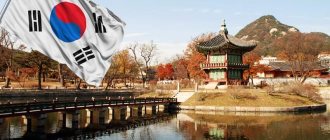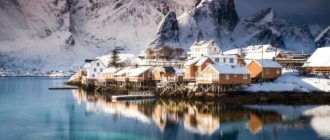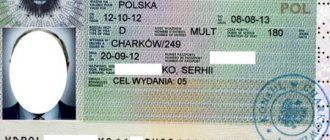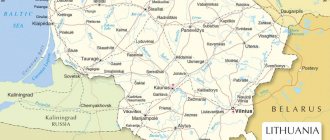Documents for working in Norway
When visiting the police or embassy, you must prepare and submit copies of documents. Be sure to present original documents as well.
If your employer in Norway is applying for a residence permit on your behalf, with written permission from you, only copies of the documents are sufficient.
If the documents are not in Norwegian or English, and most likely they are, translation of the documents will be required.
The list of required documents depends on your qualifications and type of activity, and in general it looks like this:
- passport and a copy of all used pages in the passport submission explanation - signed cover letter - two new passport size photographs with a white background - documents confirming that you have a place to live in Norway - UDI job offer form, completed - documents confirming, that the payment offered to you complies with Norwegian requirements - educational documents and/or documents confirming your work experience - CV - UDI checklist completed and signed
How to pay taxes?
When you receive your Residence card, the police will notify the Norwegian tax office and you will be issued a Norwegian identification number or “D” number. If you plan to stay in Norway permanently for more than 6 months, the tax administration will consider registering you as a resident. The Norwegian identification number is sent by mail. Everyone who works in Norway must have a Tax deduction card. Once you have your Norwegian ID number, you can obtain an electronic ID and apply for a Tax deduction card yourself. Your employer can apply for a tax credit card on your behalf.

UDI and NAV services
In Norway, in addition to the Labor Inspectorate, there are two official services regulating the labor activities of foreign workers.
Norwegian Directorate of Immigration (UDI) https://www.udi.no/), where you can get official information about work permits and regulations, both in offices and on the website. Foreign citizens looking for work in Norway should contact UDI.
The Norwegian Labor and Social Security Administration (NAV), https://www.nav.no, also provides information on work permits for individual countries. NAV handles all job-related questions and is a good and reliable resource when looking for a job in Norway.
Other Resources for Foreign Workers
Contact the official guide to employment in Norway - https://www.workinnorway.no/
There is a special service center for foreign workers: https://www.sua.no/en/
Work in Norway is regulated by the Labor Inspectorate, working conditions, responsibilities and rights https://www.arbeidstilsynet.no/
Work permit in Norway

Working in Norway is only legal if a work permit issued by the employer gives the person the right to live and work in Norway. There are two types of permissions:
12-month work permits allow skilled workers to live and work for up to a year.
3 - a monthly seasonal work permit gives the employee the right to residence and employment.
Work permit for EU citizens
EEA citizens with a valid ID or passport can legally move to Norway and seek work without a work permit for six months. They must register their presence in the country as a police job applicant within the first three months of arrival. If they have not found a job after six months, they are required to leave Norway. They may return soon after and begin the process again.
Work permit for non-EU citizens
Expats from countries outside the EU and EEA, including Russia, go through different procedures depending on the type of job they are applying for. Officially, expats applying for a work permit must already have found a job.
Average incomes of immigrants in Norway
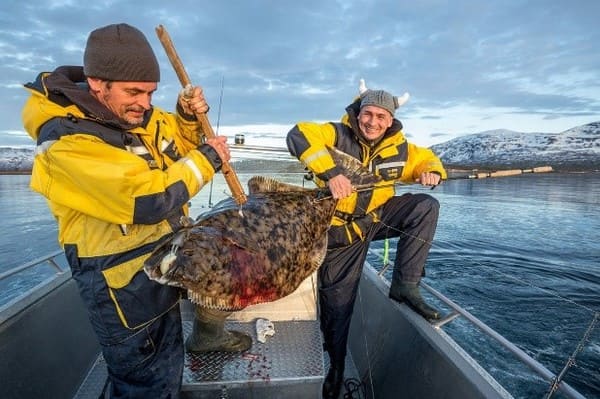
The Norwegian economy is constantly in need of an influx of new labor resources from other countries. Migrants who come to work in this country are treated with loyalty. In total, more than two million foreign specialists work in Norway. There is no discrimination in terms of wages. Moreover, Norwegians are happy to give up jobs to migrants in what they consider difficult areas of activity, since they themselves prefer not to engage in hard physical labor.
Migrants can get a job on a seasonal or permanent basis. Their workers are needed:
- in the field of production and processing of fish and seafood;
- in the oil industry;
- in construction;
- in forestry and agriculture.
In the Svalbard archipelago, Norwegian employers willingly accept visitors from the CIS countries for miner vacancies.
The table shows the average salaries that visiting specialists can expect, depending on their chosen field of employment.
| Field of activity | Salary | |
| Dollars/hour | Dollars/month | |
| Construction: | ||
| Qualified specialists | 23,7 | 6160 |
| Workers without experience | 21,0 | 5460 |
| Experienced handymen | 22,0 | 5720 |
| Agriculture: | ||
| Seasonal workers | 14,4 | 3744 |
| Permanent employees | 16,6 | 4160 |
| Fishing industry: | ||
| Skilled workers | 22,0 | 5720 |
| Unqualified personnel | 20,0 | 5200 |
| Motor transport: | ||
| Freight transportation | 19,5 | 5070 |
| Passenger Transportation | 17,7 | 4600 |
| Oil industry: | ||
| Qualified personnel | 22,0 | 5720 |
| General workers | 19,0 | 4940 |
| Services sector | 18,36 | 3000 |
Residence permit in Norway
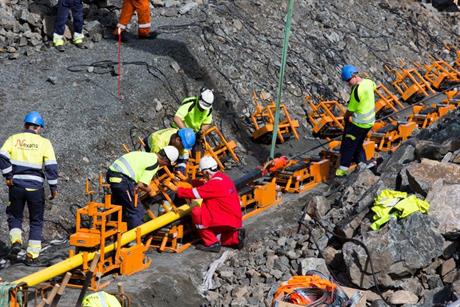
If you want to come to Norway to work, you need a residence permit.
IMPORTANT: You must have a job offer in Norway before applying for a residence permit for work.
If you are a qualified worker, you can obtain a residence permit, before receiving an offer from an employer, while you are looking for work. For citizens of the Russian Federation, this applies only if they are graduates of Norwegian universities or are engaged in research activities in Norway.
It is possible to obtain a residence permit for work as citizens of the Russian Federation in Norway if you:
1. Skilled workers
- you have completed higher education, for example an engineer or a doctor;
- you have completed professional courses, for example carpentry;
2. Seasonal workers
- You plan to work during the holidays or during a certain season. Your work is related to logging, fishing, agriculture, restaurant or tourism activities.
Important: If you work in Norway for less than 3 months, you may not receive a residence permit if the type of activity is not included in the list of exceptions. The list of exceptions is here.
3. Workers from the Russian Federation
- Special rules for residents from the Barents Sea region in the Russian Federation who plan to work in northern Norway: the provinces of Nordmark, Troms and Finnmark.
4. Cultural exchange programs
- If you are planning to come to Norway on a cultural exchange.
- You may be granted a residence permit in Norway if you are going on a working holiday, if you are a guest worker in agriculture, an employee of a humanitarian/non-profit/religious organization or an artist, musician or performer.
5. Vocational training and research

- There are different types of residence permits for people who intend to carry out scientific research or participate in vocational training.
6. Sailors
- A specific residence permit is required, depending on the specific activity, to work on board a Norwegian ship or a foreign ship in Norwegian waters.
7. Employees of foreign companies in an EU/EEA country
- If you work for a company in another EU/EEA country and need to carry out activities for that company in Norway, special rules apply to you.
State duty: residence permit 2021:
- Residence permit for work (also extension) 6,300 NOK
- Group permit for employers (per employee) 6,300 NOK
- Study permit for applicants over 18 years of age (also extension) 4,900 NOK
- Permit for scientists 4,900 NOK
- Au pair permit (also extension) 8,400 NOK
- Permanent residence permit for adults 4,700 NOK
Employment on oil and gas platforms in Norway
Home » Shift work in Norway » Employment on oil and gas platforms in Norway
High wages, from 170 to 500 EUR. per day for positions from unskilled to those requiring medium qualifications and from 300 to 700 EUR per day for positions from requiring medium qualifications to those requiring high qualifications, due to difficult climatic conditions (low temperature, high humidity, frequent sea storms), and most importantly practical isolation from the world. But even this salary is 50% lower than for Norwegian citizens, where this work is considered not prestigious. In addition, the oil and gas companies themselves are not very interested in recruiting staff from among Norwegians, who need to pay higher wages, and are constantly trying to reduce their number to the minimum required by the state. But working for 50% (approximately 4000 EUR) is attractive to not many Norwegians, especially with the ideal credit system in the country and the opportunity to work for the same pay in other areas: production, trade, industry, etc., where working conditions are not so heavy and there is no isolation from your permanent place of residence. Oil and gas companies are directly interested in recruiting workers from the CIS countries, which provides great savings at unusually low financial costs.
In this regard, oil production companies provide residents from the CIS countries with a number of benefits and try to make their stay more comfortable and profitable. Workers from these countries are provided with travel at the employer's expense to their place of work. Free housing (dormitory), four meals a day, free work visa, health insurance, and free training. But even taking into account these costs, recruiting workers from the CIS countries saves the lion's share of income from oil production.
At the first stage, all workers are classified as without certain skills. But if you have an education in specialties related to oil and gas production or simply want to occupy a higher position, and, therefore, receive a higher decent salary, then you will be given the opportunity to be tested and if you confirm your knowledge, both in theory and and in practice, you will be able to occupy the desired position, first for a trial period (6 months), and then permanently. If you do not pass the test, you can take refresher courses directly at your place of work at any time. Workers with education not related to the oil and gas industry and workers who have already worked for some time in low-skilled positions are also given the opportunity to undergo training followed by certification. However, in this case, you are required to subsequently work on this platform for at least one year. You will also have the opportunity to study English or Norwegian at any time convenient for you with fairly highly qualified teachers, completely free of charge and without any obligations, as is the case if you are taking advanced training courses.
Wage:
You can receive your salary however you want. You can do it in cash, or you can pay it to your own account. You can also, if you wish not to take all your earnings at once, but only a part (the amount that you suddenly need), and at the end of the contract immediately receive the entire amount that is due to you. You can also send your earnings to relatives in your home country. Many workers do this, which allows them to support their family if they have no income without you.
Due to difficult working conditions and, as a result, high staff turnover, healthy men under 53 years of age and women under 42 years of age are constantly required to work on a rotational basis in the Norwegian oil and gas sectors.
For the maintenance and repair of energy and drilling installations, specialists of the following professions are required: repairmen, mechanics, mechanics, machinists, electricians, operators, welders, turners, technicians, mechanics - all electrical profiles, as well as general workers.
For the daily services of the crew, the following are required: support workers, cooks, kitchen workers, doctors, drivers, hotel staff and many others.
Work is carried out around the clock, on a rotational basis. The duration of a shift on an oil and gas production platform is 105-180 days. The work schedule for technical personnel is basically 4 hours every eight hours (4 hours for work, 8 for rest), for household staff there is a continuous working day of 8 hours a day. There are no rest days during the shift. Mandatory rest on the mainland is provided to the team at the end of the shift, from 15 to 45 days. Salary from 300,000 rubles.
Important! View information about working in Norway:
The advantages of working on a rotational basis are obvious. First of all, this is a very high salary for workers, salary bonuses, and a full social package. This is a great opportunity for young professionals to receive so-called “lifting” funds from the enterprise and provide themselves and their families with housing and everything they need. All vacancies on the site are open!
Employers guarantee 100% employment at this enterprise for residents of any region. Similar vacancies:
- Employment at Gazflot LLC
Posted in Shift work in Norway. Tags: Looking for a job in Norway, Jobs in Norway, required.
Previously in the same section:
Commenting is closed.
Salary in Norway
Working in Norway offers decent earnings. To be approved for a residence permit to work in Norway, your employer must offer pay and working conditions no worse than the Norwegian average. Your salary cannot be less than usual in your profession, in the place and field where you are going to work.
Eg:
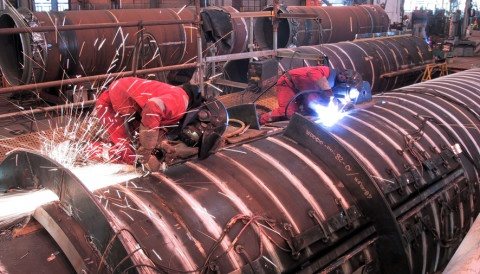
If the position requires education with a master's degree, your salary must be at least NOK 428,200 per year before taxes.
If the position requires a bachelor's degree, your salary must be at least NOK 397,100 per year before taxes.
A lower salary may be permitted if it can be documented that it is normal for your profession in the location where you will be working.
How to find a vacancy
Legal work abroad in Norway is in great demand. Fraudsters know this well. They often deceive people. The victim is promised employment, is defrauded of a deposit of several thousand dollars, and then disappears without a trace.
How to avoid falling for a scammer
Look for work in Norway through a legal agency. Nikoloz-Job has all the necessary permits. According to current legislation, our services are paid only after signing an agreement with the employer.
Norwegian work visa if I am an entrepreneur?

If working in Norway as an employee is not interesting to you and you want to start a business in Norway, you will have to apply for a skilled worker visa and open a local business as a sole trader. To obtain the necessary permit, you will need to show that you have suitable experience, training or qualifications to make your business successful and you will be able to achieve an annual gross profit of at least NOK 236,406 or more. In this case, you can also apply to have your family come to Norway with you.
Conditions for seasonal employment
Anyone who gets a legal job in Norway (applying for vacancies that do not require qualifications) will work full time. And receive a minimum salary of € 2000–2200.
What a seasonal worker is prohibited from doing
- Bring your family to Norway.
- Use the period of stay in the country to obtain permanent residence and stay on its territory for more than 6 months.
Before hiring a Ukrainian, the Norwegian employer is obliged to prove that there are no other people willing to fill the vacancy. But if he is looking for temporary staff who will work in the forest or field, this requirement is irrelevant.

